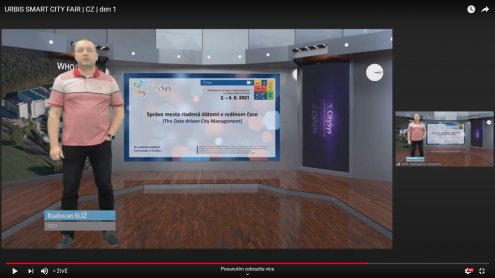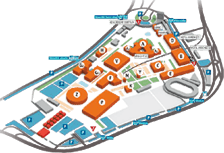Open Cities and Data-driven City Administration in the URBIS DIGITALIZATION Block
Digitization of
processes can make life significantly easier for citizens and state
administration employees. In addition, higher efficiency is associated with
long-term cost savings. The application of digital solutions in practice was
discussed at the URBIS SMART CITY FAIR conference in Wednesday's URBIS
DIGITALIZATION block.
Jiří Marek, a member of the Open Cities Committee, addressed open cities as an example of city cooperation and solving the issue of vendor lock-in in local governments. The goal of this non-profit organization is primarily an open functioning of the administration. It promotes regular publication of information, transparent public procurement from the preparation of the intent to the expiration of the warranty period, transparent decision-making and public involvement, and the use of open solutions in public administration. Open cities focus on digitization and act as a consultant for technical, methodological and legal issues related to the digitalization of local governments.
Jiří Marek also presented several projects from the Open Cities portfolio. The first of them is CityVizor, which helps municipalities manage their finances in a transparent way through a click-through budget. Another application is Dotační Software 2 ('Grant Software 2'), which handles electronic receiving, processing and management of grant applications. In cooperation with the city of Brno, Open Cities are preparing a Participatory Budget project used for the electronic gathering of projects, expression of support, and voting. A project in the field of cybersecurity focused on continuous scanning of vulnerabilities is also in the pipeline. Hence, there will be a permanent security testing of IP addresses of the participating municipalities. The organization is also preparing an open source website for medium-size towns or municipalities.
In the next part of the block on digitalization, the data-driven city administration was discussed. Radovan Slíž from the company OMS Intelligence Solutions, which is behind the CitySys platform, introduced the topic. In order for cities to function efficiently, they should focus on efficient data gathering and their subsequent structuring and analysis. The result is improved management and subsequent decision-making. A successful system enabling data-driven smart city functioning can be divided into several levels. The first is building an infrastructure that gathers data within the city and building a data platform. The second part is the correct choice of tools designed to store, manage, process and analyze the gathered data. The exchange of data between stakeholders and the adoption of the resulting solutions should not be forgotten either. Data security and quality are likewise important. Subsequently, the model scenarios themselves are created and the city administration is optimized. The main benefits of data-based urban management include automation of processes, simplification of the agenda, cost savings and the ability to respond immediately to unpredictable events.








